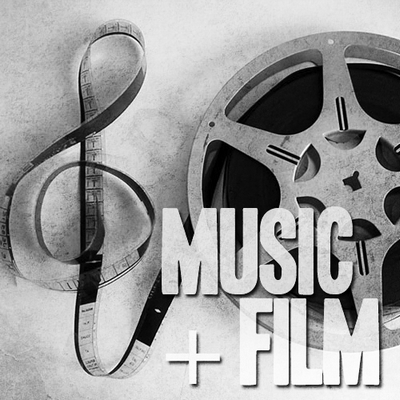“Una grande lezione di musica per film” – Parte Quarantottesima
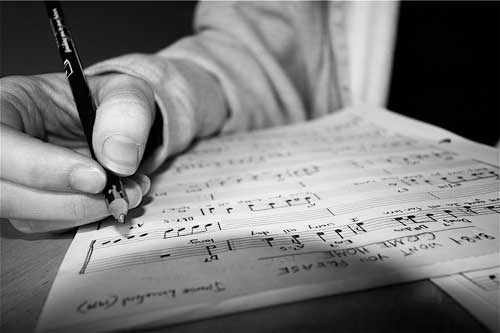
“Una grande lezione di musica per film” – Parte Quarantottesima
Andiamo avanti spediti con le nostre interviste-lezioni di Film Music a puntate per acquisire tutti i segreti dell’Ottava Arte e dei suoi compositori sia italiani che stranieri, per merito delle loro risposte che potranno esser d’aiuto per futuri colleghi che vorranno far parte della medesima area professionale o semplicemente per i coloro i quali amano quest’Arte e ne vogliono sapere di più. Vi presentiamo la quarantottesima parte con le nostre classiche sei domande alle quali i compositori replicano con fervore partecipativo.
Domande:
1) Che metodologia usate nell’approcciarvi alla creazione di una colonna sonora?
2) Qualora non abbiate la possibilità, per motivi di budget o semplicemente vostri creativi, di usare un organico orchestrale, come vi ponete e quali sono le tecnologie che vi vengono maggiormente in aiuto per portare a compimento un’intera colonna sonora?
3) Descriveteci l’iter che vi porta dalla sceneggiatura alla partitura finale, soprattutto passando per il rapporto diretto con il regista e il montatore che talvolta usano la famigerata temp track sul premontato del loro film, prima di ascoltare la vostra musica originale?
4) Avete un vostro score che vi ha creato particolari difficoltà compositive?
Se sì, qual è e come avete risolto l’inghippo?
5) Come siete diventati compositori di musica per film e perchè?
6) Che importanza ha per voi vedere pubblicata una vostra colonna sonora su CD fisico oggi che sempre di più si pensa direttamente al digital download?
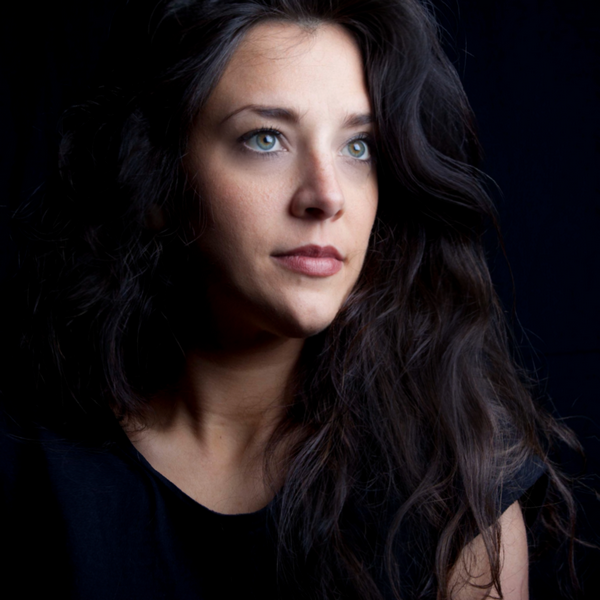
Raphaelle Thibaut (compositrice delle serie I segreti delle balene, Landing Home)
1) Di solito mi assicuro di avere il mio pianoforte con me quando guardo le immagini per la prima volta. Mi piace vedere come reagisco ad esse, come farebbe il pubblico in futuro, e come trasmetto istintivamente le mie emozioni attraverso la musica. Non significa necessariamente che finirà per essere la colonna sonora, ma mi piace l’idea di lasciare fluire i fluidi creativi sin dal principio. Una volta fatto ciò, di solito entro in un processo più “scientifico” e inizio a infondere idee analizzando narrazioni e creando temi.
2) Lo score per I segreti delle balene è ibrido. Suona principalmente orchestrale, ma in realtà ho usato molti elementi elettronici per arricchirlo e “compensare” il fatto che non ci sarebbe stato alcun musicista dal vivo. Tutto è stato fatto su Logic Pro X, utilizzando il mio pianoforte Komplete Kontrol S88, tonnellate di plug-in orchestrali ed elettronici e la mia voce. È stato fantastico poter giocare con suoni elettronici insieme ad arrangiamenti orchestrali. Questo ci ha portato a una partitura ibrida ‘versatile’ e penso che siamo sati tutti contenti del risultato!
3) Dipende davvero tutto dal progetto e dal team con cui lavorerai. Per Secrets of The Whales, ho lavorato a stretto contatto con il team di produzione della Red Rock Films e più specificamente con i registi Brian Armstrong e Andy Mitchell. La mia esperienza di lavoro con loro è stata fantastica. Molto potente. Mi sono sentita libera e sono stata in grado di elaborare le mie idee e i miei punti di vista creativi. Le tracce temporanee possono essere complicate, poiché tendono a creare un precedente e la produzione può essere un po' “troppo” abituata ad esse. Avere tracce temporanee per questo progetto specifico è stato davvero molto utile, perché come per molti documentari ‘selvaggi’, i cambiamenti di umore sono costanti e si passa da una scena giocosa a una drammatica in soli 5 secondi. Sapere esattamente cosa aveva in mente la produzione per quei passaggi mi sembrava necessario.
4) C’è questa scena in cui una madre orca piange il suo cucciolo morto e lo porta per giorni perché non può lasciarlo andare. A quel tempo avevo a casa un bambino di pochi mesi e parlavo così tanto. È stato difficile separare i miei sentimenti dal mio lavoro, ma penso che questa sia anche una cosa meravigliosa che accade quando si lavora ai documentari.
5) Ho avuto una formazione classica fin dalla tenera età e per quanto posso ricordare, sono sempre stata ossessionata dalla musica da film. Sono stata espulsa dalla scuola di musica a 18 anni perché non volevo essere una pianista e ho finito per lavorare in Tech per un po'. Nel 2015 sono stata invitata a un evento aziendale di Google agli Abbey Road Studios di Londra. Gli ingegneri mi hanno guidato attraverso il processo di registrazione di un film nella sala di missaggio dello Studio 2 e mi hanno fatto ascoltare campioni della colonna sonora di Steven Price per Fury. Sebbene avessi solo una minima idea di come questi cavi, monitor e console combaciassero, questo bellissimo pasticcio era l’unica cosa che aveva perfettamente senso per me. Due settimane dopo, ho lasciato il mio lavoro per diventare una compositrice a tempo pieno e non me ne sono mai pentita! Penso che, poiché non ho seguito un percorso tradizionale, ho sentito il bisogno di mettermi alla prova due volte più duramente. Ora vedo questo cambiamento come una forza, non un ostacolo.
6) Questa è una domanda interessante. Ad essere onesta, in questa fase della mia carriera non sono sicura di vederlo come un problema. Quello che voglio alla fine è raggiungere le persone con la mia musica, suscitare emozioni e portarle in un viaggio. Non importa come e dove accade.
English Version:
1) Tell us about your own process when you start writing a film score.
I usually make sure I have my piano with me when watching the pictures for the first time. I like to see how I react to them, the same way the audience would in the future, and how I instinctively convey my emotions through music. It doesn't necessarily mean that it will end up being the score, but I like the idea of letting the creative juices flow at the beginning. Once I've done that I usually get into a more "scientific" process, and start infusing ideas by analyzing narratives and creating themes.
2) If you aren't able to use a standard symphony orchestra (be it for budget constraints, or even purely creative reasons) does your creative process change? Which are the technologies and software you use in this occasion?
The score for Secrets of The Whales is hybrid. It sounds mostly orchestral but I actually used a lot of electronic elements to enrich it and 'make up' for the fact that there would be no live player at all. Everything has been done on Logic Pro X, using my piano Komplete Kontrol S88, tons of orchestral and electronic plugins, and my voice. It was great to be able to play around with electronic sounds along with orchestral arrangements. This led us to a "versatile" hybrid score and I think we were all happy with the result!
3) How would you describe the entire process of creating a film score, from the script to the finished product? Can you tell us about your relationship with the director and the film editor, especially in the circumstances when there's already temp track mixed in?
It really all depends on the project and the team you get to work with. For Secrets of The Whales, I worked closely with the production team at Red Rock Films and more specifically with directors Brian Armstrong and Andy Mitchell. My experience working with them was fantastic. Very empowering. I felt free and was able to come up with my own ideas and creative angles. Temp tracks can be tricky, as they tend to set a precedent and the production can get a little "too" used to them. Having temp tracks for this specific project was actually very helpful, because as for many wild documentaries, the mood changes are constant and you get from a playful scene to a dramatic one in just 5 seconds. Knowing exactly what the production had in mind for those felt necessary to me.
4) Is there a score of yours that was particularly demanding and challenging from a creative point of view? If so, how did you face the challenge?
There's this scene where a mother orca mourns her dead calf, and carries it for days because she can't let go. At that time I had a few months old boy at home and I related so much. It was difficult to detach my own feelings from my work, but I think this is also a wonderful thing that happens when working on documentaries.
5) How did you become a film composer and why?
I had classical training from a very early age and as far as I can remember, I was always obsessed with film music. I was kicked out of music school at 18 because I didn't want to be a piano performer, and I ended up working in Tech for a while. In 2015, I was invited to a Google corporate event in Abbey Road Studios in London. The engineers took me through the process of recording for a movie in Studio 2's mixing room, and had me listen to samples of Steven Price's score to Fury. Although I had only a slight idea of how these cables, monitors and consoles all fit together, this beautiful mess was the only thing that made complete sense to me. Two weeks after, I quit my job to become a full-time composer and never regretted it! I think that because I didn't take a traditional route, I felt the need to prove myself twice harder. Now I see this shift as a strength, not an obstacle.
6) How important is for you to see your works released on physical formats in the current era of digital download and audio streaming services?
That's an interesting question. To be honest, at this stage of my career I'm not sure I see it as an issue. What I want ultimately is to reach people with my music, trigger emotions and take them on a journey. It doesn't matter how and where it happens.
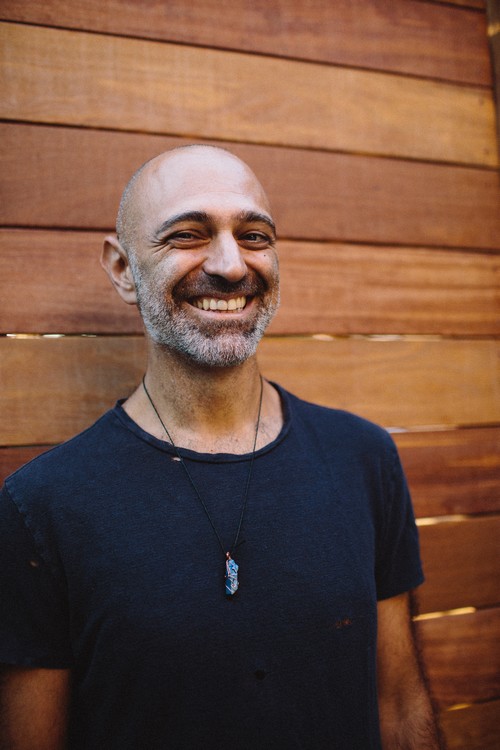
Reza Safinia (compositore di Bruce Lee – La grande sfida, I corrotti - The Trust, The Bounce Back - I passi dell’amore, delle serie Snatch, Warrior)
1) Mi piace guardare il film con il timecode e scrivere l’ora su un block-notes ogni volta che sento qualcosa, ma non scrivo la nota solo l’ora, quindi sono ancora presente con il film... Poi quando il film è finito vado a tutti i timecode e guardo di nuovo e scrivo note elaborate. Questa diventa la mia bibbia perché è un resoconto della mia prima impressione del film, che accade solo una volta ed è il più vicino possibile all’esperienza del pubblico... Poi leggerò i miei appunti e trascorrerò un po' di tempo meditando o facendo yoga; in genere allontanarsi da tutto e lasciare che le idee della prima impressione si sedimentino... È un po' come cucinare, devi lasciare un po' di tempo affinché tutti i sapori si intreccino, e una volta che lo hanno fatto, mi sento pronto per scrivere; fiducioso che sto scrivendo nello spirito del film o dei personaggi...
2) Sì, uso Logic pro e molti sintetizzatori. Mi piace scrivere spartiti elettronici e modificare partiture, paesaggi sonori, etc. Puoi diventare molto cinematografico ed espressivo con filtri, inviluppi, LFO, ecc. In qualche modo penso a quegli elementi come una manifestazione moderna di quando i compositori classici consideravano l’articolazione di una nota nel modo in cui avrebbe influenzato il suono in un’orchestra. A volte, mi piace anche creare una partitura ibrida e registrare un pianoforte dal vivo, forse un violoncello dal vivo: questo può anche essere più potente di un’intera orchestra, è un potere diverso, un potere dell’intimità. Recentemente ho registrato un intero album in questo modo, chiamato “Yin”, e sento che è il mio lavoro migliore e più espressivo.
3) Di solito vengo assunto per un film quando è già stato montato, e a volte anche in fase di sceneggiatura. Solitamente ascolto le note del regista, le visioni, ascolto la traccia temporanea, ne discuto con loro (e con il montatore o chiunque altro che sta valutando) vedo cosa funziona nella temp track e cosa no, e poi mi riferisco al mio block-notes e pongo domande man mano che vengono fuori... Mi piace lavorare con e senza una traccia temporanea: entrambi i modi hanno i loro vantaggi. Una temp track è un ottimo modo per definire in generale, per fare una metafora, un campo da baseball, e anche per concentrarsi su ciò che funziona e cosa no. Non avere una temp è fantastico soprattutto quando c’è fiducia nel rapporto tra compositore e regista; quella fiducia è essenziale in questo caso perché senza una temp non c’è davvero una comprensione comune della linea di base, quindi ci vuole un tipo speciale di regista che è disposto a essere positivamente sorpreso senza quel troppo attaccamento a idee preconcette sulla musica.
4) I corrotti - The Trust è stata una sfida divertente perché era allo stesso tempo molto oscura e molto comica. Bilanciare quelle polarità in una partitura che aveva continuità è stato difficile all’inizio, ma una volta trovato la giusta prospettiva, è stata una pura gioia da sbrogliare. L’ho affrontata pensandoci dal punto di vista di un attore. Nicholas Cage ed Elijah Wood sono amici poliziotti che decidono di rapinare uno spacciatore e il loro piano va davvero storto, costringendoli a uccidere persone e considerare di uccidersi a vicenda... Entrambi i personaggi vanno in posti inquietanti, ma all’inizio il tutto è goffo, divertente e carismatico, quindi mi sono chiesto, come si sono avvicinati gli attori ai loro ruoli? Stanno costruendo un ritratto di personaggi felici e fortunati che hanno il potenziale per fare cose terribili, un po' come in Breaking Bad, l'insegnante di chimica che incontriamo al principio che aveva sempre quel potenziale di Heisenberg da qualche parte dentro... Quindi ho portato questa idea nella musica. Scrivere musica eccentrica che avesse il potenziale per diventare molto inquietante, e nel suo punto più minaccioso ricordasse che la persona che fa queste cose terribili aveva ad un certo punto buone intenzioni.
5) Ho iniziato a commentare cortometraggi e questo mi ha portato a un film. Ero un produttore musicale che faceva pop e rhythm and blues, e ad un certo punto il mio gusto ha iniziato a spostarsi verso la musica strumentale, soprattutto classica, e ho sentito il bisogno di perseguire quella strada nel mio lavoro.
6) Mi piace vedere il mio lavoro su vinile o CD, ma quanto è importante rispetto a quanto è vanità non posso dirti. Sento che ci sia un certo valore in ciò semplicemente a causa del valore che vedo nel vinile che ho collezionato come fan di altri artisti. Soprattutto con il vinile c’è un rituale aspetto olistico nell’aprire la custodia, estrarre il vinile, metterlo sul giradischi, sollevare la puntina, appoggiarla delicatamente sul vinile senza fare un graffio orribile... è sensuale e sviluppa un rispetto per l’intero processo di registrazione e abilità artistica. Da questo aspetto penso che sia una grande tradizione da mantenere per tutti gli artisti musicali.
English Version:
1) Tell us about your own process when you start writing a film score.
I like to watch the film with timecode and write the time on a notepad every time I feel something, but I don't write the note just the time, so I'm still present with the film... Then when the film is finished I go to all the timecodes and rewatch and write elaborate notes. This becomes my bible because it's an account of my first impression of the film , which only happens once and is the closest you get to the experience of the audience... Then I'll read through my notes and spend some time meditating or doing yoga, generally stepping away from everything and letting those first impression ideas sit... It's a bit like cooking, you have to leave some time for all the flavors to intertwine, and once they have, I feel like I am ready to write confident that I'm writing in the spirit of the film, or the characters...
2) If you aren't able to use a standard symphony orchestra (be it for budget constraints, or even purely creative reasons) does your creative process change? Which are the technologies and software you use in this occasion?
Yes, I use logic pro and a lot of synths... I enjoy writing electronic scores and tweaking scores, soundscapes etc... You can become very cinematic and expressive with tweaking filters, envelopes, LFO's etc. In some way I think of those elements as a modern manifestation of when classical composers would consider the articulation of a note in the way it would affect sound in an orchestra. Sometimes, I also like to do a hybrid score and record a live piano, maybe a live cello, this can even bve more powerful than a whole orchestra, it's a different power, a power of intimacy. I recently recorded a whole album in this way called Yin and I feel it's my best and most expressive work.
3) How would you describe the entire process of creating a film score, from the script to the finished product? Can you tell us about your relationship with the director and the film editor, especially in the circumstances when there's already temp track mixed in?
I am usually hired on a film when it has already been edited, that said sometimes at script stage too. I will usually listen to the director's notes, visions, listen to the temp track, discuss it with them (and with the editor or anyone else weighing in) see what works in the temp, what doesn't, and then refer to my own notes and ask questions as they come up... I enjoy both working with and without a temp track, both ways have their own advantages. A temp is a great way of generally defining the ballpark, and also zeroing in by having those discussions around what works and what doesn't. Having no temp is also great when there is trust in the relationship between composer and director, that trust is essential in this case because without a temp there isn't really a common understanding of the baseline, so it takes a special type of director who is willing to be positively surprised without too much attachment to preconceived ideas about music.
4) Is there a score of yours that was particularly demanding and challenging from a creative point of view? If so, how did you face the challenge?
The Trust was a fun challenge because it was both very dark and very comedic. Balancing those polarities in a score that had continuity was a tricky in the beginning but once I found the angle, it was a pure joy to unravel. I faced it by thinking about it from an actor's point of view. Nicholas Cage and Elijah Wood are buddy cops who decide to rob a drug dealer and their plan goes really wrong resulting in them having to kill people and consider killing each other... Both characters go to disturbing places, but at the start, they are goofy, funny and charismatic, so I wondered, how did the actors approach their roles? They are building a portrayal of happy go lucky characters who have the potential for doing terrible things, kind of like how in Breaking Bad, the chemistry teacher we meet in the beginning, always had that Heisenberg potential somewhere inside... So I took that idea to the music. To write quirky music that had the potential to turn very disturbing, and at its most menacing point remember that the person doing these terrible things meant well at some point.
5) How did you become a film composer and why?
I started scoring shorts and it kind of led to a feature. I used to be a music producer doing pop and rnb, and at a certain point my taste started shifting towards instrumental music, especially classical, and I felt the need to pursue that avenue in my work.
6) How important is for you to see your works released on physical formats in the current era of digital download and audio streaming services?
I love to see my work on vinyl or CD, but how much is it important vs how much a vanity thing I can't tell you. I feel there is some value in it simply because of the value I see in the vinyl I have collected as a fan of other artists. Especially with vinyl there's a ritualistic aspect to opening the sleeve, taking out the vinyl, putting it on the turntable, lifting the needle, gently laying it on the vinyl without making a horrible scratch... it's sensual, and develops a reverence for the whole process of recording and artistry. From that aspect I think it's a great tradition for all music artists to maintain.
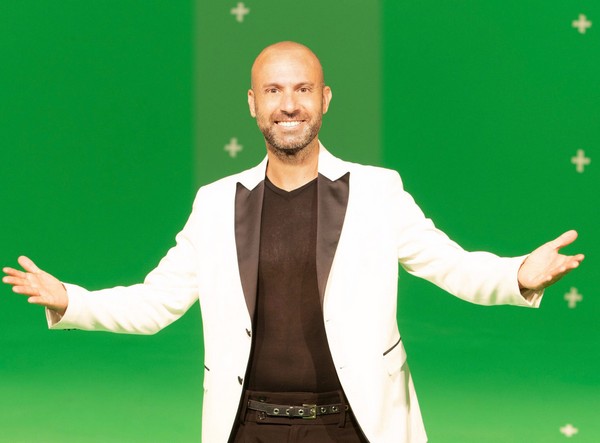
Max Nardari (compositore di Diversamente)
1) Non c’è una regola precisa nell’approccio e nella composizione di una colonna sonora; spesso si parte da una suggestione guardando le immagini e da lì si crea la musica...
Con Diversamente sono state scelte anche alcune canzoni che avevamo già in repertorio e che non erano state scritte appositamente per il film.
2) Oggi ci sono dei Virtual Instruments forse dello stesso livello delle orchestre vere, come ad esempio i suoni di Spitfire Audio che uso abitualmente. Sono Orchestre intere registrate con i migliori microfoni e mixer nei migliori studi del mondo. come l’Air Studios ad Abbey Road... quindi cosa ci può essere di meglio? La cosa importante è la scrittura delle parti.
3) Solitamente il regista ha un ruolo fondamentale di scelte e di visioni della musica... il film più importante è sempre quello che hai nella testa e nella musica che lo deve accompagnare.
5) Compositori lo dico sempre ci si nasce! Ho iniziato a scrivere musica a 16 anni e non mi sono più fermato. La mia è un’esigenza di far uscire la musica che mi gira in testa ogni secondo e se mi chiedi come si fa non so cosa rispondere... Scrivere per il cinema è sempre stata una mia grande passione. Diciamo che comporre la musica per un film non è così lontano dallo scrivere una canzone o un tema per una colonna sonora. Ci sono delle regole da rispettare e dei tempi ma l’approccio è simile.
6) Siamo al passo coi tempi e non rinneghiamo nulla anche se personalmente sono un grande sostenitore del CD e del Vinile.
FINE QUARANTOTTESIMA PARTE
